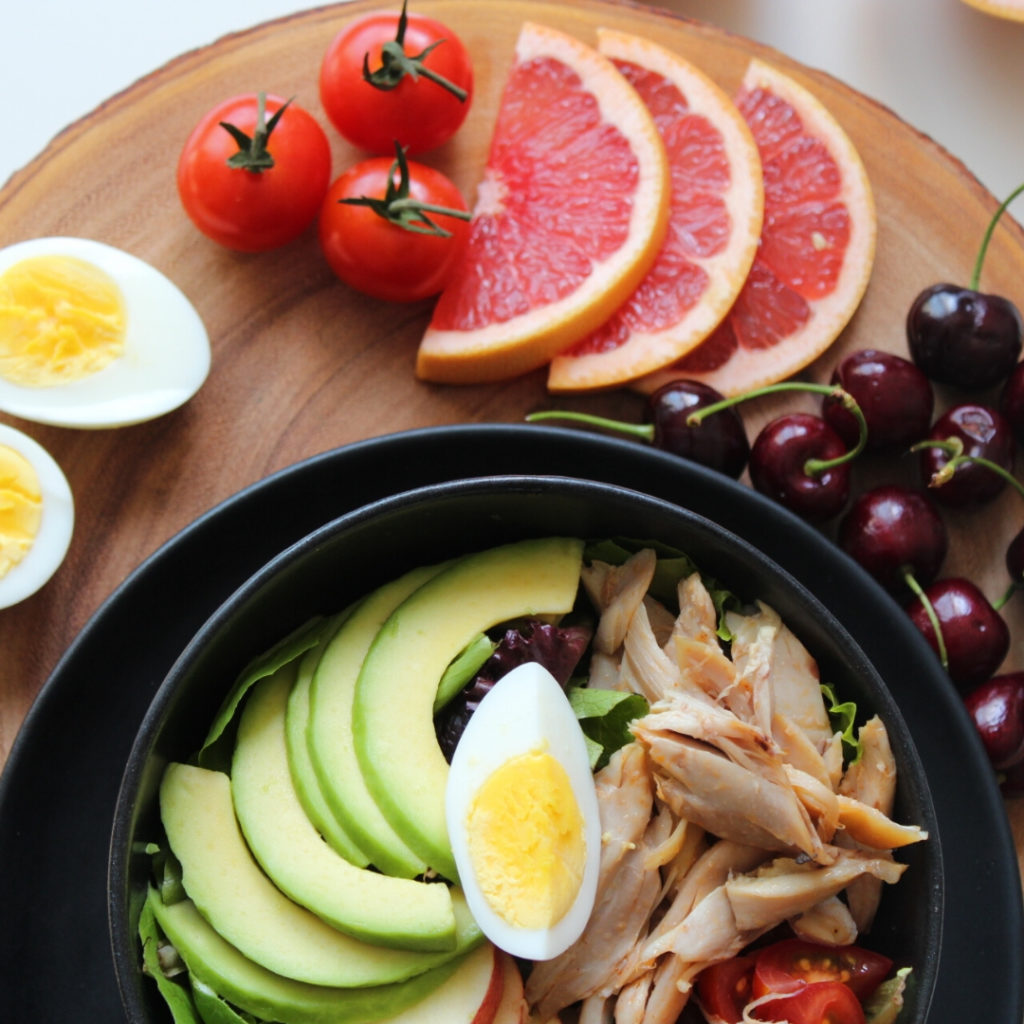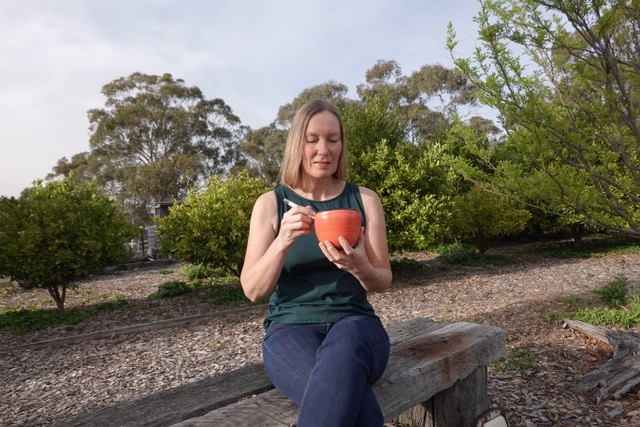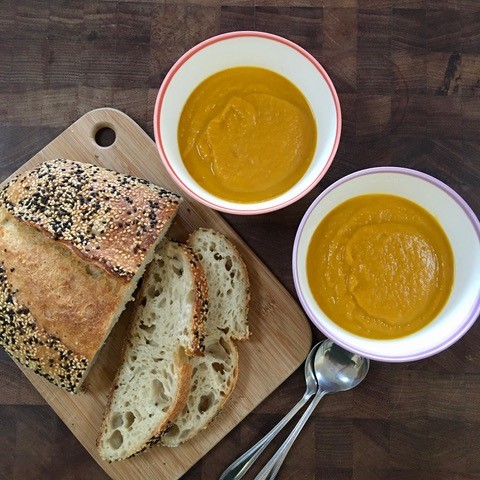Keep calm and eat mindfully
In this article Sallyanne explores how mindfulness helps to reduce emotional eating during stressful events such as COVID-19.

Why do we eat more when we are stressed?
Many of us take comfort from eating during stressful times. This happens for biological and psychological reasons. Stress sends us into fight or flight mode and a number of hormones are released to prepare our mind and body to deal with the perceived threat. Cortisol, a stress hormone, increases the levels of appetite hormones, making us crave high fat and high sugar foods. Food is a common emotional soother, and it can become our “go to” in stressful times. Long term, or chronic, stress can lead to feelings of hunger, overeating and weight gain. The way we deal with stress is based on our past experience, as well as the skills we have to manage difficult or challenging situations.
How mindfulness practices help you
1) Create space
Mindfulness practices, such as meditation and mindful eating, create space in your mind and in your day, counteracting stress.
Pausing is central to the practice of mindfulness. It provides time to observe how you are feeling before you make a [food] choice.
2) Connect
Connecting with your eating and food choices allows you to see how far you have deviated from your normal eating routine, and why you want to eat.
3) Observe
Rather than beat yourself up about your food choices, just notice them. And commit to improving your choices, one meal or snack at a time.
4) Have nourishing foods available
Staples
- Fruit
- Vegetables (such as soups)
- Nuts and seeds
- Whole grain bread, rice, quinoa and pasta
- Milk, yoghurt and cheese
- Cooked legumes, meat, fish or poultry
And keep hydrated with water and herbal teas.
5) Other sources of nourishment
Sleep, exercise, staying in contact with friends and family and passive sources of nourishment, such as burning aroma therapy oils, taking aroma therapy baths and listening to calming music are important sources of nourishment.
Summary
Mindfulness is something that we can all learn with practice and patience. It helps to keep us well-nourished in times of stress.
For more information on mindful eating and living, read Sallyanne’s book, Eating for You. It is available in the Blue Mountains Food Co-operative Big Little Shop.
Please seek help from a qualified healthcare practitioner if you experience ongoing stress. Left untreated, stress can lead to serious physical and mental health conditions.
Sallyanne Pisk

Sallyanne Pisk is one of Blue Mountains Food Co-op’s Wellness Wednesday Practitioners and the Founder of Eating for You. She is an accredited practising dietitian and nutritionist, and teacher of mindful eating and living.
Her blog, book, and online course, Foundations of Mindful Eating, assist you to tackle lifelong eating habits and improve your relationship with food.

Try Sallyanne’s Ginger Pumpkin Soup recipe here.


